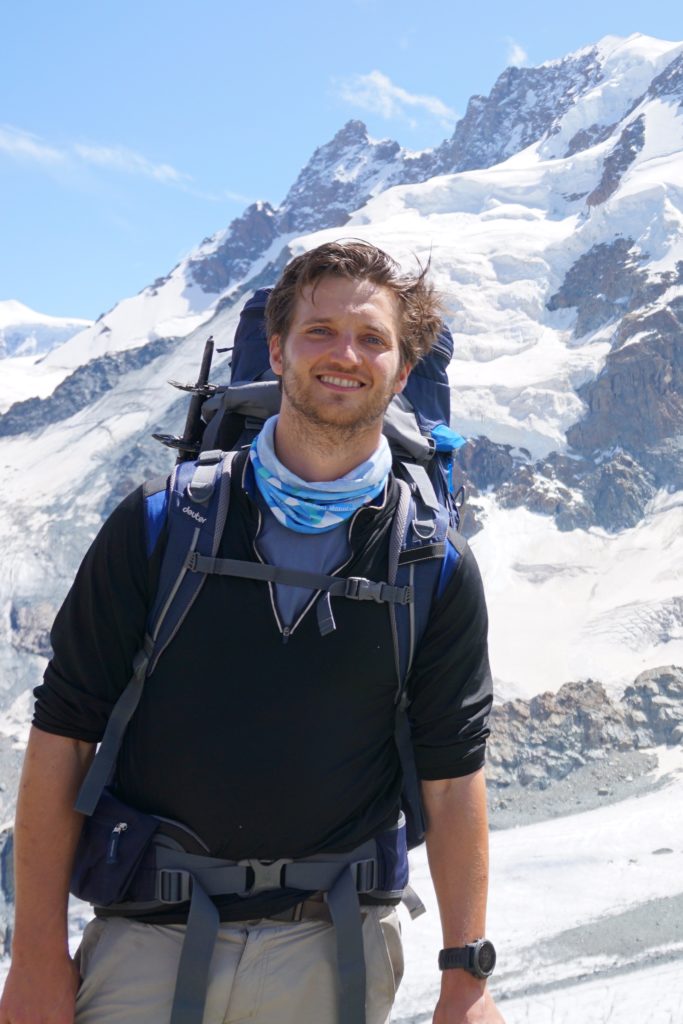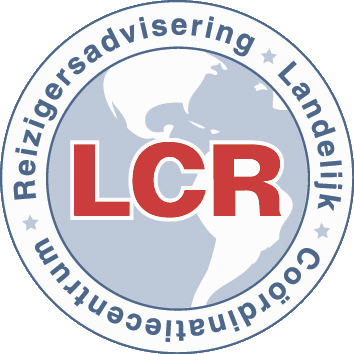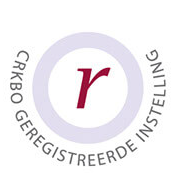Stijn Thoolen has been selected by the European Space Agency (ESA) to conduct research at Concordia, Antarctica from November 2019 up to and including the beginning of 2021. In the months leading up to, and during, this adventure, we will occasionally receive an update from Stijn about his findings on this small, isolated part of the world. Today the third piece, where he tells us about life at his new home: Concordia.
November 13, 2019, East-Antarctic plateau
My arm is tired of wiping the freshly formed ice from my airplane window every two minutes, but I am too excited to stop. I almost can’t believe it. Everywhere I look is ice. We have been flying over this ice sheet at 5000 meters altitude for about three hours now, with nothing at all on the horizon. Absolutely nothing. And even the horizon seems to disappear at times, thanks to the surrealistic way in which the ever-present sunlight blends the white clouds and the ice together into an endless, motionless ocean of ice that almost makes us disappear as well. I am wondering if the pilots have a better idea of where we are, when suddenly two familiar towers appear in the distance. Concordia! My new home! And if I had any expectations from all the preparations of the past months (years), they were definitely exceeded. What a special and bizarre place, on the middle of that ice sheet, out of nothing: that people live here!

Can you really prepare for a journey to the end of the world? I hope that all the efforts of the past months haven’t been for nothing, but with all these surprises the past few days I am starting to doubt it. Since our arrival in Christchurch, New Zealand three days earlier, it has all gone by so terribly fast . We hadn’t even left the airport yet, badly jetlagged and desperate for a bed, when the IPEV/PNRA reception committee cheerfully told us that our next flight to Mario Zucchelli station was taking off sooner due to rising katabatic winds (I had to look it up). Here is your bag with polar gear, the key of your hotel room which you will never use, briefing in two hours, boarding in four – good luck!
It was another one of those confrontations with reality that seemed to unfold a little differently than I had wanted. But somehow I was reassured when I saw my four crewmates looking just as lost as I was. The fatigue didn’t make the situation any better, and perhaps it is not so bad then that you can’t control the situation anyway. “C’est l’Antarctique”, they say. In other words, don’t complain. You better deal with it.
So here we go again: Quickly shovel in some of the welcome refreshments, nervously improvise a set of warm clothing for our arrival in the cold, take one more picture with a stranger who thinks I am a polar hero (I have no clue myself anymore), and then at full speed, eyes shut, head towards the Hercules C130 for a third night on a plane.
It all feels quite strange to me. Everywhere I look reality forces itself upon me, and everywhere around me I see Antarctica: Antartica hotel, Antartica terminal, Antarctica posters and Antarctica pictures complete with Antarctica quotes, and even Antarctica as a bus destination (but how?). At the same time, the entire scene feels unreal (everything is so new, I have difficulty processing it). In the dark, in the rain, in my polar suit: as if I am part of a movie again. Just like all those other red and blue polar suits, I let myself be pushed into the cargo plane by Italian military personnel. Side by side, elbow in my face, feet stuck between bags, and the cameraman’s gear (it all looks quite serious actually!) on my lap, so that the Koreans and the French minister of science can also come aboard. Unreal, but so cool! Though my body would really like to, I can’t really sleep now. I feel really good. How lucky I am to witness all this! And while I enjoy everything that is happening around me, I decide to put on some appropriately cool music: Creedence Clearwater Revival – Run through the jungle.


After a six hour-high in the plane I look outside and am surprised by the ‘mountains’ below that rise above the clouds. When I recover my wits (I am not the sharpest anymore at this point), I realise that there aren’t supposed to be any mountains or clouds out here. We are flying over ice, and this is (really) Antarctica.
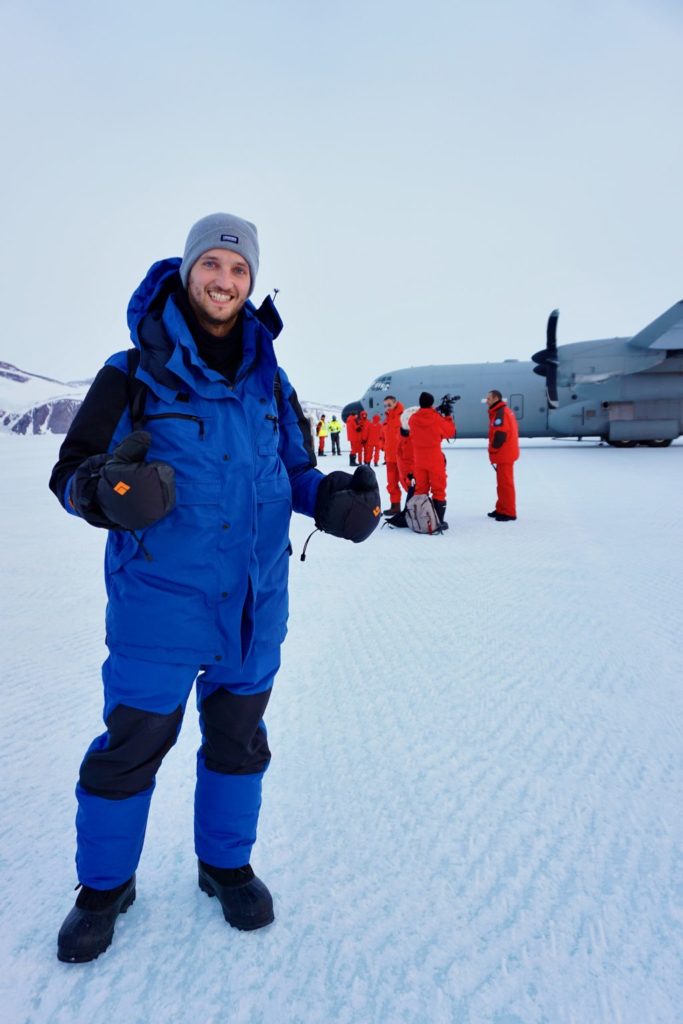
It was all so different from anything I had ever seen before, and I was constantly pleasantly surprised and amazed. I tried to absorb all these wonderful new impressions the best I could. At Mario Zucchelli we were lucky to have two days to do so, before we would continue our journey to Concordia. I was ecstatic from the pristine, unprecedented, almost out-of-this-world nature and the realisation that we had arrived at such a special place. My expectations continued to be blown out of the water.
December 29, 2019, Concordia
I have been here for a month and a half now. Back home, family and friends are interested: is it what I expected it to be? And I realize that I am struggling to answer that question. What were my expectations anyway? Did I really have any, or was it just plain curiosity? Or has the Antarctic already put a stop to it all?
My time here so far has taught me this: Things don’t really go the way you are used to, or the way you would perhaps want. Ideas and plans constantly change. Too many factors (weather, logistics, culture, you name it) have more to say here than you do, and that is something you better accept. The frequently used “C’est l’Antarcqtique” is the beautiful way of reminding you that it is better to leave your expectations behind, that you’re better off not clinging to your old ways of thinking too much. That way you won’t be so disappointed either. In any case, it definitely makes the surprises at the end of our world much more beautiful.
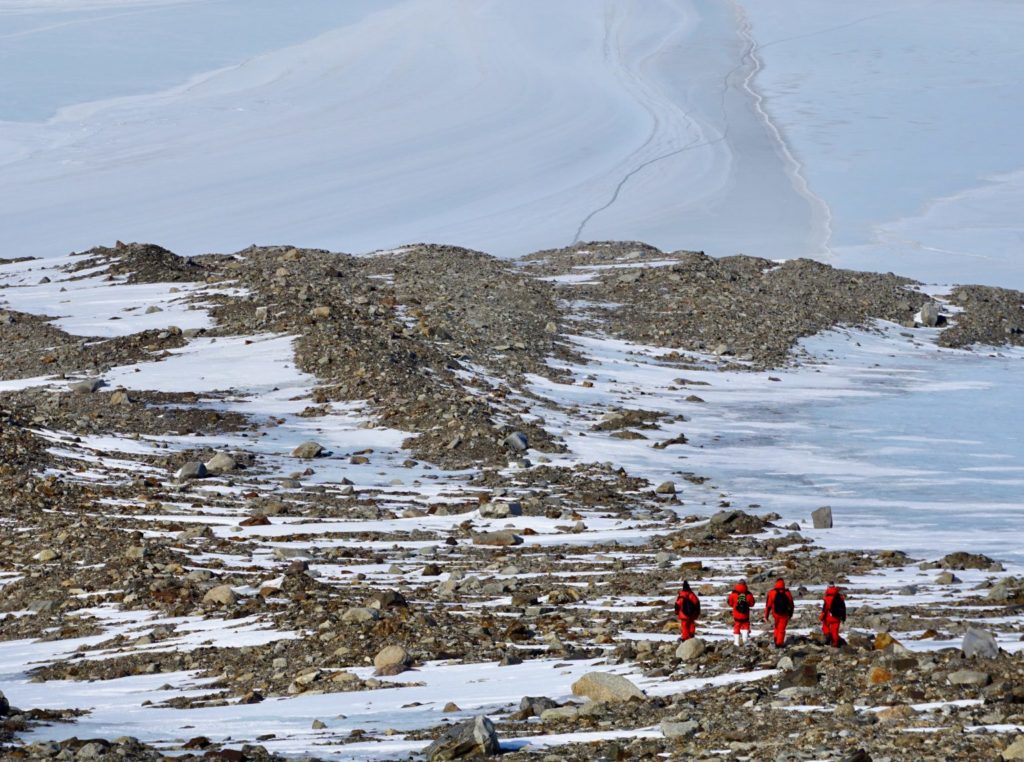
Maybe that alone is already worth this whole adventure. One of the positive psychological effects that polar sojourners can experience is termed in the literature as ‘salutogenesis’. In other words, you learn to think in a way that promotes your physical and mental well-being, based on an increased sense of understanding of the world around you, and trust that things will work out positively. Exposure to all these surprises and the positive stress they induce teaches us to cope better with new, sometimes difficult situations, and we become better at solving problems. It makes us flexible. The challenges of a new world can help us grow.
Perhaps the same thing applies to us as a crew this year. Expectations seem high sometimes, about what food should be served, what we can and cannot say to each other, or how we should spend our time to become a coherent crew. I like to think that such high expectations will only fill our thoughts and make us less receptive to anything new and less tolerant of the differences between us. And if then it doesn’t really work out the way we had planned (as long as 12 Stijns are not living in this station, I suppose that is inevitable), chances are high we get disappointed. But this way we would miss all the beautiful things we can learn from each other. If we are open to those surprises at the end of our world and allow ourselves to learn – after all that is the reason I got on that plane – I am sure it will be a wonderful year. C’est, after all, l’Antarctique.
